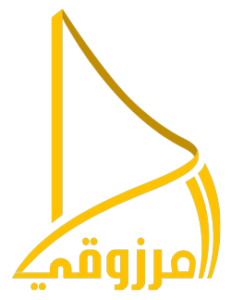The Business Year 2012
Cooperation Perspectives
Mohamed Moncef Marzouki
mardi 9 octobre 2012
Mohamed Moncef Marzouki, President of Tunisia, on the historical links between Tunisia and Turkey, and ensuring a sound democratic transition process.
Voir en ligne : Link
Cooperation Perspectives
Of all the populations that have come to settle in the northeast African continent, only two have not been considered by the Tunisian people as invaders : the Arabs and the Ottomans. Indeed, the Ottomans came to Tunisia to enrich the Arab-Muslim heritage and contribute to an open culture. It is not by chance that Tunisia was the first country to have followed Turkey’s example when a modern constitution was adopted. It is also not by chance that the first two populations that abolished slavery, long before many occidental countries, were the Turks and the Tunisians. The first countries to abolish polygamy in the Muslim world were Turkey and Tunisia. Our history is full of similarities that reflect the choices made by the two countries, which reinforces our strategic partnership. Partnership is the key word that both countries have been repeating since the revolution in Tunisia. The visits made by both Turkish and Tunisian officials since January 2011, and especially the day after the elections on October 23, hold the hope of deeper cooperation.
Mustafa Kemal Atatürk and Habib Bourguiba are, respectively, the two figureheads of modern Turkey and Tunisia. They established republican values and thoughts and spread free and obligatory education. At that time, these were revolutionary measures, which tells us a lot about the common vision shared by both men.
Today, both countries share much more than the color of their flags and their founding fathers’ vision of the state. In this post-Kemalist era, Turkey has experienced instability and military coups that have complicated the political landscape but gave way to an appeased multi-party system and a politically, economically, and socially stable state. Ennahda, the Islamic party in Tunisia, is strongly inspired by this Turkish model, and has chosen to ally itself with secular parties. The political, secular, and religious components of Tunisia can learn from Turkey, a country that was able to maintain a secular and republican state, whilst guaranteeing individual liberties, a multi-party system, and a stable model for economic development.
In light of this common platform, it is in our best interest to reinforce economic cooperation between Turkey and Tunisia. The economies of the two countries have followed common trajectories, be it in terms of GDP structuring or opening up to foreign markets. However, today the Turkish economy comprises a greater number of enterprises and is characterized by larger industrial groups with a greater economic reach at the international level. The commercial relationships between Tunisia and Turkey are governed by the agreement instituting a zone of free exchange, which was signed in Tunis on the November 21, 2004. It allowed us to achieve a global volume of trade equivalent to €700 million.
We are convinced that the Tunisian and Turkish economies are complementary, both in terms of the range of goods and services, and market segments. A judicious partnership between the economic operators of both countries on the one side, together with our market prospects and the promotion of exports on the other, will no doubt promote the strengthening of regular and meaningful contracts.
The influx of Tunisian travelers to Turkey has increased significantly over the last 10 years, surpassing 100,000 tourists per year. Turkish tourists visiting Tunisia are not as plentiful. Promoting Tunisia’s cultural and archeological sites should definitely increase the number of Turkish visitors to the country, while strengthening our understanding of our respective common Ottoman, Islamic, and Mediterranean cultures.
Regarding academic and professional relations, Turkish establishments are inspired by the Anglo-Saxon higher education model and by German models for vocational training. On the other hand, Tunisian establishments are modeled on French structures, known for the predominance of fundamental sciences in all experimental approaches. Therefore, cooperation regarding professional formations would be beneficial, especially for Tunisia, which is currently going through a re-adaptation phase regarding its professional formations to respond to the needs of enterprises.
After 23 years of dictatorship, Tunisia is free and experimenting with democracy. Conscious of the challenges that the country faces, Tunisia is convinced that it must tie a bond of close cooperation with countries such as Turkey, which understand economic prosperity in a context where they have managed to harmoniously reconcile Islam, democracy, and modernity.
Both countries share a common vision in establishing a regional foreign policy that avoids conflicts and emphasizes economic cooperation. Tunisia sees the Arab Spring as an opportunity to establish a new strategic relational network between Arabs and their neighbors. Turkey stands as a central pillar in this perspective.
© The Business Year
